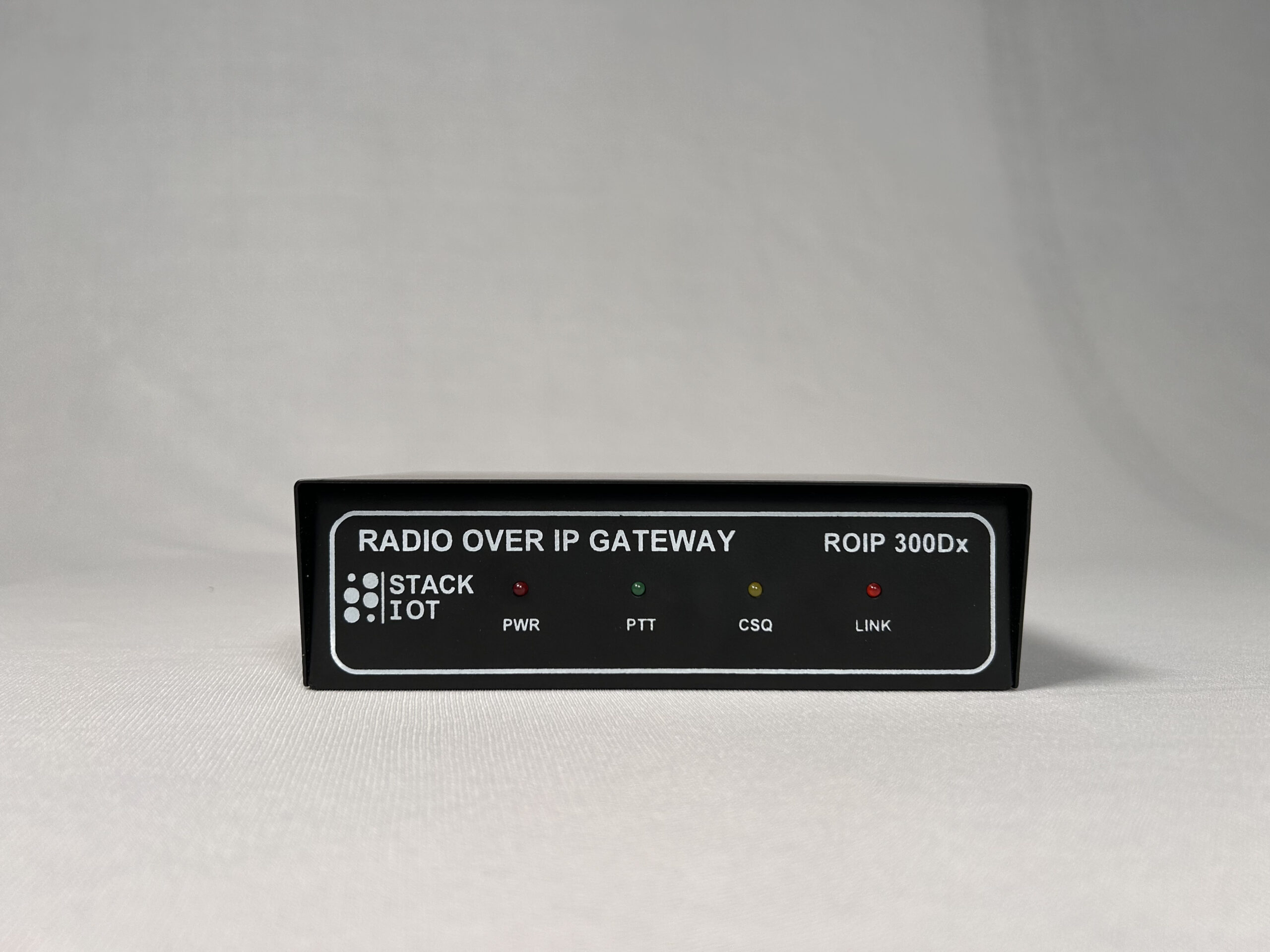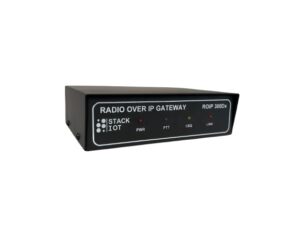Radio Over IP (ROIP) has transformed itself into the major sectors such as the Defence sector, disasters, and even mining. Using internet protocol with radio-based protocols, ROIP ensures greater flexibility, scalability and interoperability as compared to radio systems. This blog focuses on the 5 best application of ROIP within these industries that are challenging, and this is why the radio over IP technology and ROIP gateway devices are proving to be solutions that cannot be underestimated.
What is ROIP?
ROIP (Radio Over IP) is a communication system wherein the radio signals are delivered on IP networks, which can be LAN, WAN or move through the internet. ROIP does this rather than traditional RF signal messages being used to pass voice and data over IP packets. This allows smooth, safe and instant interaction between geographically distributed teams.
One of the major components of the system is the ROIP Gateway (Radio Over IP Gateway) which is a device that functions as a bridge between the legacy radio and IP networks thus between the various communication networks.
ROIP in Defence, Disaster Management and Mining –Why It Matters
The industries mostly deal with extreme conditions and spread out workforce that needs constant, safe, and stable communications. Conventional radio systems are limited in their range, interoperability and infrastructural cost. The ROIP eliminates them and is capable of allowing:
- Increased distance of communication across the internet or intra networks
- Multi-platform interfunctionality
- Easy on the Budget installation and maintenance
- Adding to the state of the art IT structure
- More efficient data and voice encryption
Best 5 ROIP Use Cases
1. Improved Defence Tactical Communication
On the defensive, speed and understanding of communication may prove to be the success or failure of the mission.
How ROIP Helps:
- Interoperability across different radio systems: Using ROIP gateways, forces using different radios (VHF, UHF, HF) can communicate seamlessly.
- Extended range beyond line-of-sight: Traditional radios are limited by terrain and distance. ROIP leverages IP networks, allowing communication anywhere with internet or satellite links.
- Secure and encrypted communication: Modern ROIP solutions support advanced encryption, crucial for Defence operations.
- Integration with command and control systems: ROIP can link radios with digital command systems, enabling real-time data sharing.
| Feature | Traditional Radio | ROIP-Enabled Communication |
| Range | Limited by geography | Global via IP networks |
| Interoperability | Limited | Cross-platform supported |
| Encryption | Basic | Advanced AES and IPsec |
| Infrastructure Cost | High (repeaters, towers) | Lower (leverages existing IP) |
2. Coordination in Disaster Management and Emergency Response
Communication networks usually get damaged or clogged during the period of natural disasters or emergencies. Rapid response interagency (fire, police, medical) coordination is essential.
What ROIP Can Do:
- Quick network deployment: Since ROIP systems can be rapidly deployed there is the ability to use satellite or mobile internet.
- Multi agency communication: Different agencies on different radios can interface through one ROIP gate way.
- Remote control and monitoring: Incident commanders have a chance to listen and command radio traffic remotely.
- Redundancy and reliability: ROIP offers back-up and communication ways once traditional networks are down.
Example:
Teams covering distant places which are spreading on vast spaces during a major flood may remain in touch with a ROIP network which may travel across mountains and streams.
3. Real-Time Communication for Mining Operations
Mining creates dangerous environments that extend over vast areas, underground or in distant places.
What ROIP Can Do:
- Surface and underground integration: ROIP is used to connect underground radio in tunnels to surface control rooms.
- Safety level and detection: Alerts in real time in case of an emergency situation such as gas leaks, collapses, etc.
- Scalability: More users or addition of new radios in a mining site is simple without the need of expensive upgrades of infrastructure.
- Remote handing: Overseeing of communication systems in central locations to ascertain they are operations safely and with no failures of communication.
4. Networking of Other Radio Networks
Most organizations use various kinds of radios across the various locations.
What ROIP Can Do:
Unified communication platform ROIP gateway translate to IP packets an analog radio signal, linking the various systems.
- Cost savings: Reduces the need for expensive repeaters and physical infrastructure.
- Mobility: Users are able to talk over radios, smart phones or computers on the ROIP network.
- Cross border: Applicable in transnational Defence training or mining industries which work in other countries.
5. IoT and Smart System integrations
Industries are increasingly adopting IoT and smart technologies to improve operational efficiency and safety. RoIP, being an IP-based communication system, can integrate smoothly with these smart systems.
What ROIP Can Do:
- IoT device connectivity: Radio voice communication can be merged with IoT dashboards for centralized monitoring systems.
- Data analytics: Combined analysis of radio traffic and IoT system data for faster decision-making.
- Automation: Radio events or patterns can trigger alerts or workflows in IoT systems.
- Future-proofing communication infrastructure: ROIP’s IP-based nature allows easy integration with cloud and edge computing.
Summary Table: Benefits of ROIP in Key Sectors
| Use Case Area | Primary Benefits | Key Features |
| Defence | Secure, interoperable, long-range comms | Encryption, multi-radio integration, command link |
| Disaster Management | Rapid setup, multi-agency coordination | Mobile deployment, redundancy, remote control |
| Mining | Safety, underground-surface comms integration | Real-time alerts, scalable, remote management |
| Multi-network Integration | Unified platform, cost savings | Analog-to-IP conversion, mobility |
| IoT Integration | Enhanced monitoring, automation | Sensor data integration, cloud compatibility |
Conclusion
In Defence, disaster management and mining, ROIP is a game changer technology where secure, scalable, and flexible communications networks with potentials to address the shortcoming of conventional radio systems, ROIP enables unlimited and uninterrupted communication channels in mission-critical applications. Organizations with ROIP gateway and radio over IP solutions would enable them to future-proof their communication system and help with improved coordination, safety, and operational efficiency.
In case you are seeking to apply the latest ROIP advanced solutions to your organization, become acquainted with StacklOT, one of the most innovative communication technologies working to transform industries like healthcare and emergency services.
FAQs
1. What is the difference between ROIP and traditional radio communication?
ROIP transmits radio signals over IP networks (internet or LAN), whereas traditional radios transmit signals over RF frequencies directly. ROIP offers longer range, better interoperability, and easier integration with digital systems.
2. Can ROIP work without internet access?
ROIP requires IP connectivity but can function over private IP networks, satellite links, or even local area networks without internet, depending on infrastructure.
3. Is ROIP secure for Defence communication?
Yes, ROIP systems support robust encryption protocols like AES and IPsec to ensure secure communication.
4. How quickly can a ROIP system be deployed during disaster response?
ROIP systems can be rapidly deployed, often within hours, especially if using mobile or satellite IP connections.
5. Can existing radios be used with ROIP technology?
Yes, ROIP gateways bridge legacy radios with IP networks, enabling continued use of existing equipment.




